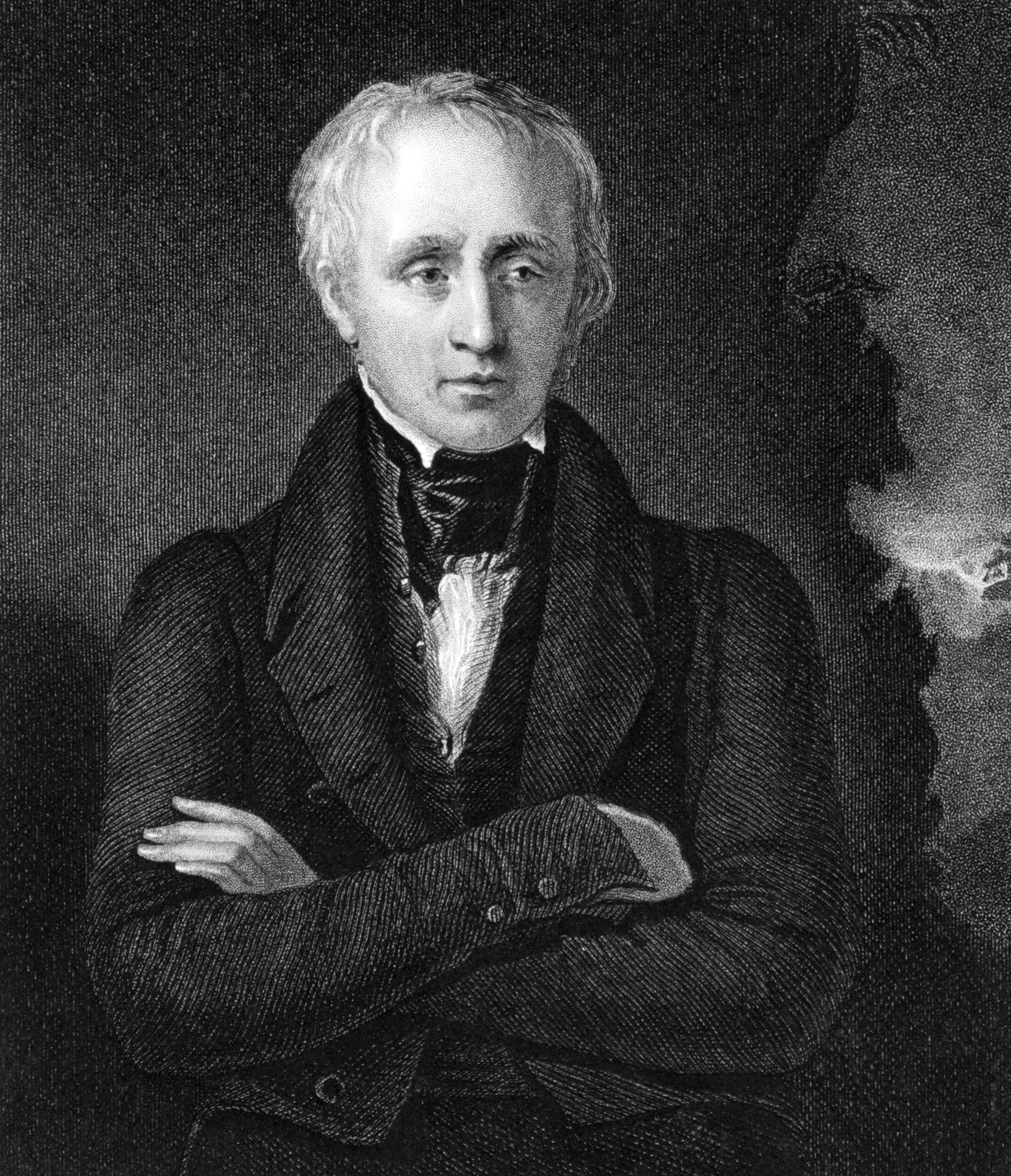Wordsworth, William (1770-1850), is considered by many scholars to be the most important English Romantic poet. In 1795, Wordsworth met Samuel Taylor Coleridge. The two men collaborated on Lyrical Ballads (1798), a collection of poems frequently regarded as the symbolic beginning of the English Romantic movement. Wordsworth wrote most of the poems in the book. See Romanticism.

In the preface to the second edition of Lyrical Ballads (1800), Wordsworth outlined ideas about poetry that have since been identified with Romanticism. He argued that serious poems could describe “situations from common life” and be written in the ordinary language “really used by men.” He believed such poems could clarify “the primary laws of our nature.” Wordsworth also insisted that poetry is “emotion recollected in tranquility” and that a poet is “a man speaking to men,” different from his fellows only in the degree of his sensitivity but not in any essential way.
Wordsworth has frequently been praised for his descriptions of nature. However, he rightly claimed that his primary interest was the “mind of man.” In fact, a key section of his poem The Prelude: or, Growth of a Poet’s Mind insists that love of nature leads to the love of humanity. His finest poems, including the “Lucy” lyrics (1798-1799), “Michael” (1800), “Resolution and Independence” (1802), and “The Solitary Reaper” (1807), dramatize how imagination creates spiritual values out of the memory of sights and sounds in nature.
Early life.
Wordsworth was born in Cockermouth, which is now in the county of Cumbria, on April 7, 1770. His mother died in 1778, his father in 1783. Relatives provided for his education. Wordsworth entered Cambridge University in 1787, the year he wrote his first significant poem. During a summer vacation in 1790, he visited France, then in turmoil because of the French Revolution. After graduating from Cambridge in 1791, he returned to France and became a supporter of the revolution. He returned to England in December 1792. Although liberal in his youth, he later became politically and religiously conservative. As a result, he was severely criticized by poets Lord Byron and Robert Browning and others as a traitor to his own youthful principles. Wordsworth was appointed poet laureate in 1843.
Later career.
Wordsworth married Mary Hutchinson in 1802. They had five children. Wordsworth was deeply saddened by the drowning death of his brother John in 1805. His sadness was reflected in his poem “Elegiac Stanzas Suggested by a Picture of Peele Castle” (1806). This poem may have marked the end of Wordsworth’s youthful creative period. It seems to reject his early optimistic belief, stated in “Tintern Abbey,” that “nature never did betray the heart that loved her.” In 1807, Wordsworth published one of the most famous poems in English literature, “Ode: Intimations of Immortality.” In this piece, Wordsworth praised childhood and urged individuals to rely on intuition.
Wordsworth’s masterpiece is his long autobiographical poem, The Prelude. He wrote it between 1798 and 1805, but he continued to revise it for the rest of his life. The poem was published in 1850, shortly after his death. The revisions that Wordsworth made in The Prelude between 1805 and 1850 clearly indicate how his values changed as he aged. In its best passages, The Prelude achieves a remarkable combination of simplicity and grandeur.
Wordsworth wrote most of his best poetry before 1807. But he wrote several important works, notably The Excursion (1814), later. This long poem discusses virtue, education, and religious faith. Wordsworth also wrote 523 sonnets, many of which compare with those of William Shakespeare and John Milton. Wordsworth died on April 23, 1850.
